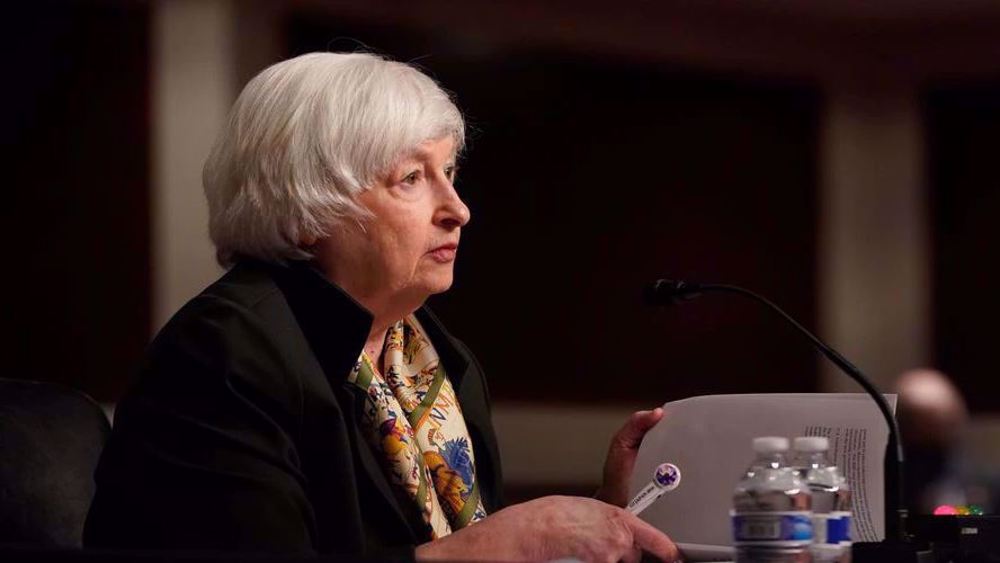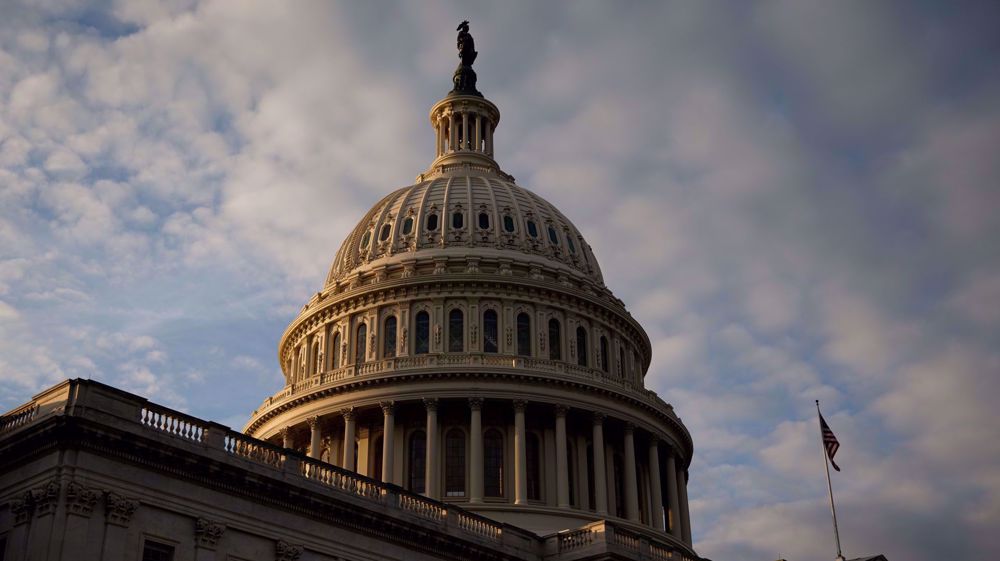US could default within weeks absent action on debt limit: Report
The United States could default within weeks if Congress fails to take action to address the debt limit, according to an analysis by the Bipartisan Policy Center (BPC).
Congress has only a couple of weeks to avert another government shutdown over the federal debt ceiling and Senate leaders do not appear to be anywhere close to a deal.
The BPC analysis projected that the "X date" when the United States would be unable to meet all of its obligations will most likely take place between December 21 and January 28.
The think tank called on Congress to raise or suspend the debt limit before it leaves Washington, DC for the year.
“Those who believe the debt limit can safely be pushed to the back of the December legislative pileup are misinformed,” Shai Akabas, BPC director of economic policy, said in a news release. “Congress would be flirting with financial disaster if it leaves for the holiday recess without addressing the debt limit.”
The United States narrowly avoided default in October after congressional Republicans refused to vote to increase the nation’s debt borrowing limit, forcing Democrats to pass a short-term extension, setting up another showdown for December.
Congress passed a $480 billion debt limit increase in mid-October. The Treasury Department has been using "extraordinary measures" since then to prevent a default.
There is no indication that lawmakers can unite behind an omnibus spending bill before that deadline, especially since Republicans have already signaled their opposition to another increase to the debt ceiling, despite the potentially severe consequences of a US default.
In a recent letter to Congress, Treasury Secretary Janet Yellen warned that the Treasury would be left with insufficient remaining resources to finance the government beyond December 15.
The debt ceiling puts a cap on how much the federal government can borrow to pay its bills. Since the end of World War II, Congress has passed nearly 100 modifications to the debt limit to keep financing the government. But lawmakers from both parties have in recent years turned the process into a partisan political cudgel.
US Senate Majority Leader Charles Schumer (D-N.Y.) and Senate Minority Leader Mitch McConnell (R-Ky.) have been discussing to figure out a path forward on the debt limit, but have yet to announce an agreement.
The US government has been shut down over failure to raise the debt ceiling before but it has never defaulted on its debts.
A default, Yellen has recently warned, would "probably cause a recession” and could put Social Security and child tax credit payments at risk.
Defense Secretary Lloyd Austin has also painted a grim picture should the US default on its debts, warning that the military might not be able to pay service members, civilians or contractors.
Despite catastrophic repercussions that a default would have for the US economy, Republicans and Democrats are still far away from reaching a deal to raise the debt limit.
Iran warns against US-Israeli plot to weaken Muslims, dominate region
VIDEO | Public uproar in US against Israeli regime
‘Ghost town’: 70% of Jabalia buildings destroyed by Israel
Mother’s Day: Sareh Javanmardi’s inspiring journey as Paralympic champion and mother
Russia downs over 40 Ukrainian drones as Putin vows 'destruction' on Kiev
VIDEO | Yemen: A bone in Israeli neck
D-8’s role in Iran’s economy after Cairo summit
China slams US as ‘war-addicted’ threat to global security












 This makes it easy to access the Press TV website
This makes it easy to access the Press TV website